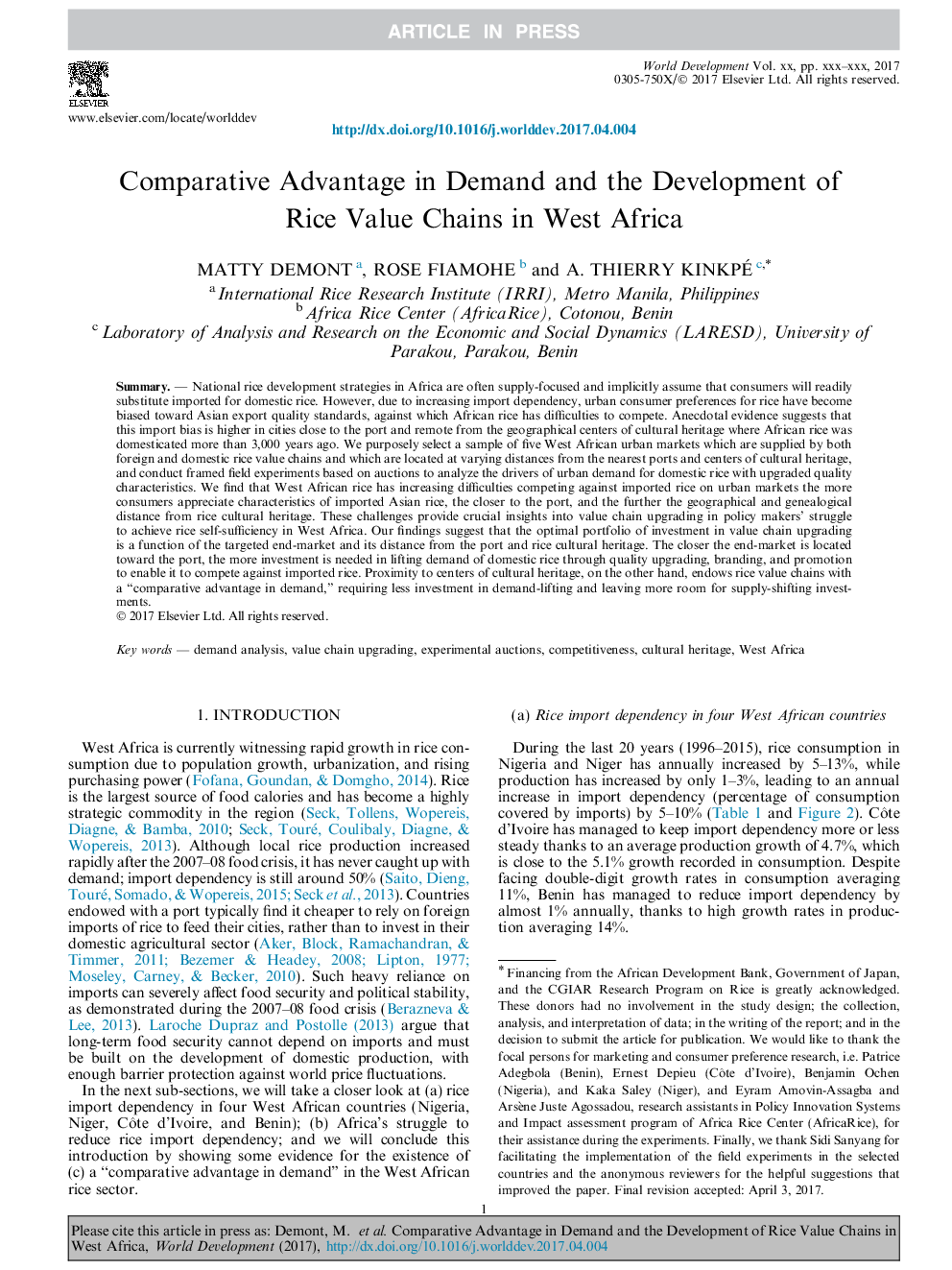ترجمه فارسی عنوان مقاله
مزیت نسبی در تقاضا و توسعه زنجیره ارزش برنج در غرب آفریقا
عنوان انگلیسی
Comparative Advantage in Demand and the Development of Rice Value Chains in West Africa
| کد مقاله | سال انتشار | تعداد صفحات مقاله انگلیسی |
|---|---|---|
| 97162 | 2017 | 13 صفحه PDF |
منبع

Publisher : Elsevier - Science Direct (الزویر - ساینس دایرکت)
Journal : World Development, Volume 96, August 2017, Pages 578-590
ترجمه کلمات کلیدی
تجزیه و تحلیل تقاضا، ارتقاء زنجیره ارزش، مزایده های تجربی، رقابت پذیری، میراث فرهنگی، غرب آفریقا،
کلمات کلیدی انگلیسی
demand analysis; value chain upgrading; experimental auctions; competitiveness; cultural heritage; West Africa;

